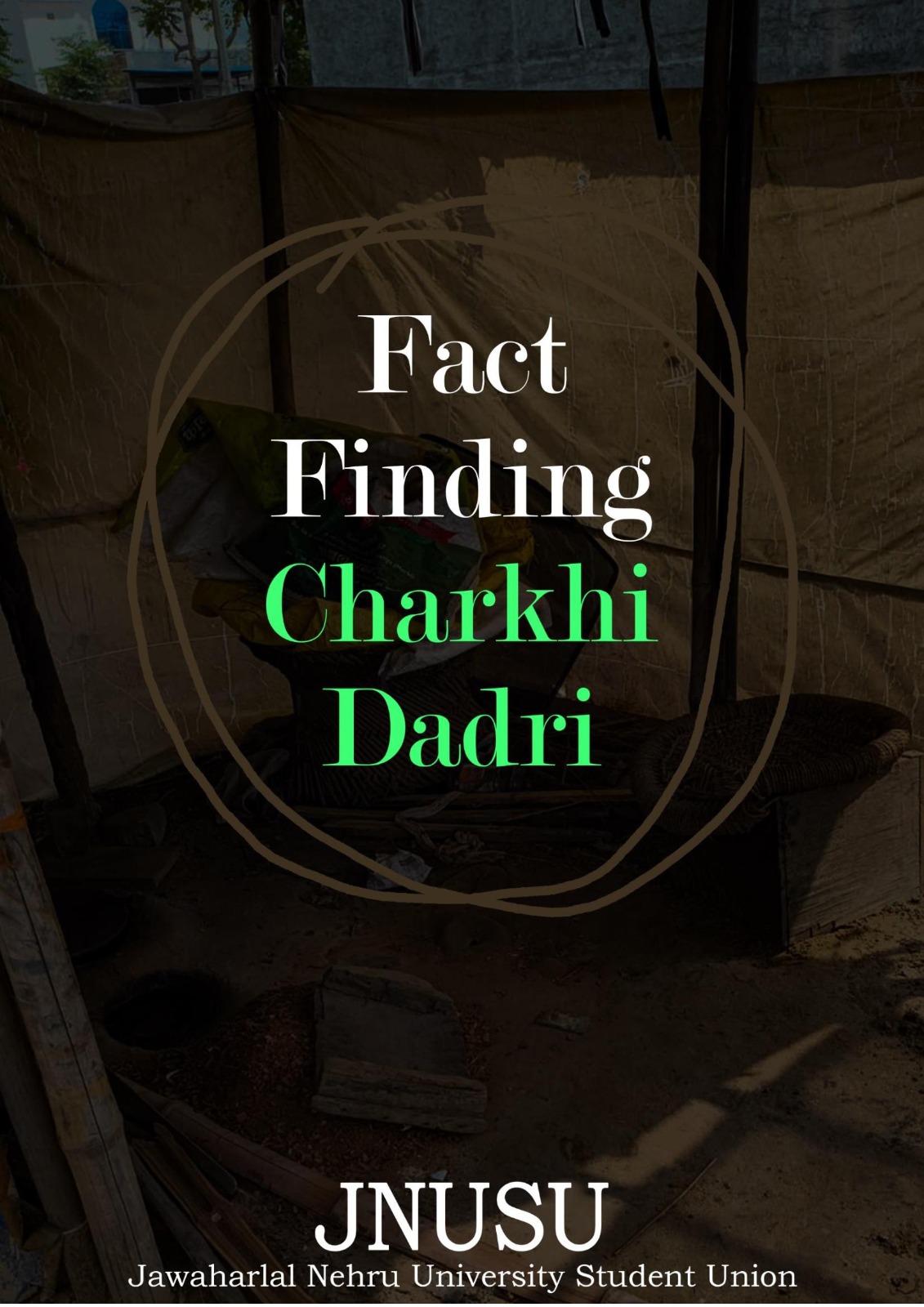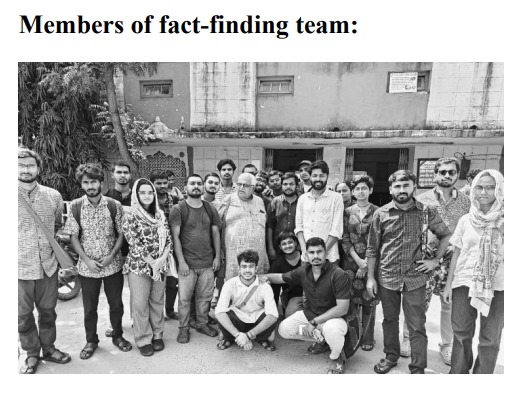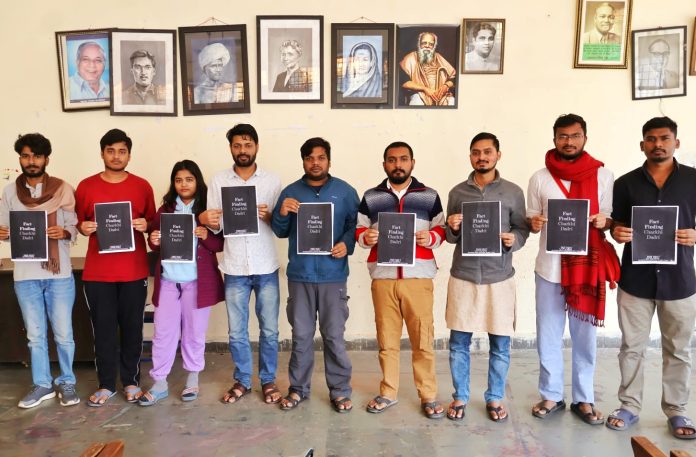New Delhi: The Jawaharlal Nehru University Students’ Union (JNUSU), in collaboration with members of CPI(ML) and AIKM, has released its findings following a comprehensive investigation into the lynching of Sabir Malik, a Bengali Muslim migrant worker, in Charkhi Dadri, Haryana. The report sheds light on the horrifying events surrounding the incident and highlights systemic failures by state institutions.
On 15th September 2024, a 26-member fact-finding team visited Badhra and Hansavas Khurd in Charkhi Dadri to examine the circumstances leading to the lynching. Sabir Malik, a scrap collector residing with his family in Badhra, was brutally killed by members of Gau-Rakshak Dal under the pretence of cow protection. Another victim, Ashrudin, who survived the attack, recounted harrowing details of the assault, including threats to his family.
 Key findings of the report include:
Key findings of the report include:
- Planned and Orchestrated Violence: The attack was organised by members of the Gau-Rakshak Dal, with alleged complicity from local law enforcement. Despite the proximity of the police station to the incident site, no timely intervention was made.
- Communal Overtones: The lynching reflects a disturbing trend of Hindu majoritarian violence, with Gau-Rakshak Dal targeting marginalised Muslim migrants. Claims of beef consumption were proven false by forensic reports, indicating communal tensions were deliberately inflamed ahead of the assembly elections.
- Systemic Failures: Survivors reported active police collaboration with the attackers. Instead of safeguarding the victims, law enforcement detained Muslim migrants, leaving them vulnerable to subsequent violence.
- Forced Displacement: Fear and insecurity have driven migrant families to abandon their homes, leaving behind their possessions and livelihoods. The affected areas remain vacant and desolate.
 The report calls for:
The report calls for:
- Immediate legal action against all individuals involved in the lynching;
- Accountability of law enforcement officials who failed in their duty to protect lives;
- Comprehensive support for displaced families, including rehabilitation and financial aid; and
- Repeal of laws fostering cow vigilantism, which have repeatedly been exploited to target minority communities.
JNUSU President Dhananjay emphasised, “This incident is not isolated but part of a larger pattern of state-enabled violence. Justice for Sabir Malik is non-negotiable, and systemic reforms are essential to prevent such atrocities in the future.”
The fact-finding team comprised JNU students, community leaders, and activists committed to uncovering the truth and advocating for justice.




